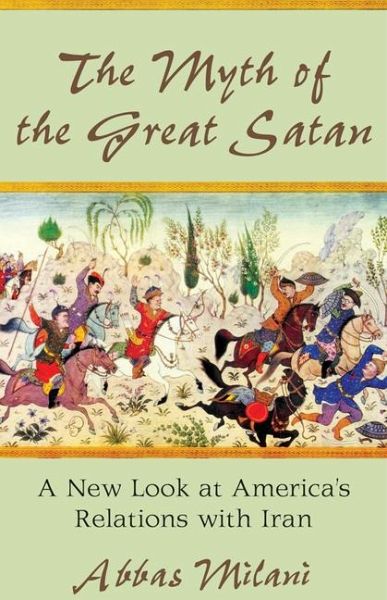
The Myth of the Great Satan
A New Look at America's Relations with Iran
Versandkostenfrei!
Versandfertig in über 4 Wochen
15,99 €
inkl. MwSt.

PAYBACK Punkte
8 °P sammeln!
The clerical regime in Iran has always partially defined itself in terms of its opposition to the United States. The founder of the regime, Ayatollah Ruhollah Khomeini, first used the Qoranic moniker of the Great Satan to refer to America. Today, not only the regime but its invariably self-serving narrative of U.S.-Iranian relations is facing challenges more serious than any in the past. In The Myth of the Great Satan, Iran expert Abbas Milani examines the history of America's relations with Iran and debunks the myth of the United States as the "Great Satan" as a necessary first step in establ...
The clerical regime in Iran has always partially defined itself in terms of its opposition to the United States. The founder of the regime, Ayatollah Ruhollah Khomeini, first used the Qoranic moniker of the Great Satan to refer to America. Today, not only the regime but its invariably self-serving narrative of U.S.-Iranian relations is facing challenges more serious than any in the past. In The Myth of the Great Satan, Iran expert Abbas Milani examines the history of America's relations with Iran and debunks the myth of the United States as the "Great Satan" as a necessary first step in establishing a new relationship between the two nations. Milani shows how, like all enduring myths, this one has some tangible roots in reality but that they have been used by the regime today, and by the Soviets before it, to obfuscate other elements and construct the myth. By revealing this history the lies and the myth can be exposed. By debunking the myth and establishing the realities of the complicated history of the two countries' entanglement, the author says, we can hope to establish normal relations between these two longtime adversaries. Abbas Milani is a research fellow and codirector of the Iran Democracy Project at the Hoover Institution and the Hamid and Christina Moghadam Director of Iranian Studies at Stanford University. He has published more than twenty books, the most recent is Eminent Persians: The Men and Women Who Made Modern Iran, 1941-1979 (2008).












